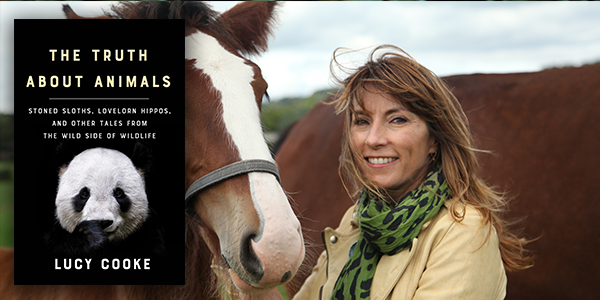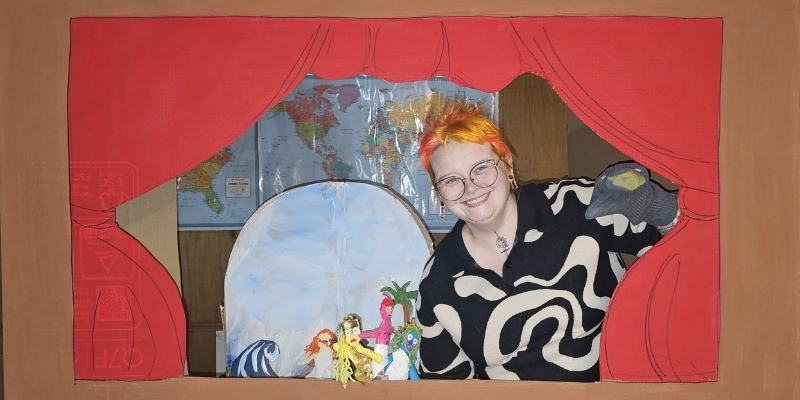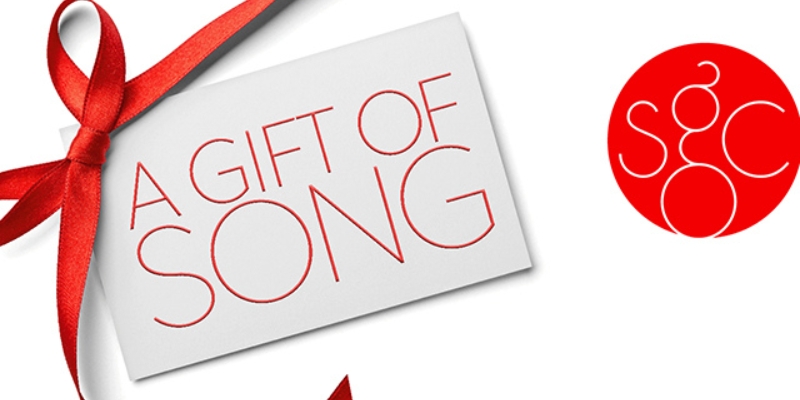
Humans often look at the animal kingdom through our own lens, and many times we tend to project our own values and emotions onto the animals. Here to set the record straight is National Geographic Explorer Lucy Cooke. She’ll be joining us on April 22 with wisdom from her new book The Truth About Animals. To give us some perspective on all varieties of animals, beloved and besmirched, Cooke spoke with Town Hall’s Copywriter Alexander Eby about her upcoming event.
Get tickets for Lucy’s event on 4/22.
AE: In your book you aim to dispel some misconceptions we hold about animals, and you mention Aristotle and Disney in particular as examples of where some wrong ideas came from. Can you tell me more about that?
LC: So the book is about how we have misconstrued animals, and explaining where those misconceptions came from. That’s not to single those two out, Aristotle or Disney that is, but it’s really just to show the range of misconceptions that exist. Aristotle of course was the first Zoologist, the grandfather of Zoology, and he was a fantastic scientist, but even he made some mistakes. And Disney of course is a founding father of popular culture and how we see animals in a popular sense, so really that statement is just to illustrate how we make mistakes about animals not just in popular culture, but scientifically as well.
One of the examples you bring up as a classic misconception we hold is about penguins “holding hands.” How does that example illustrate our misunderstanding?
As a species, we have a compulsion to anthropomorphize. We’re constantly looking for our reflection in the animal kingdom. But this trips us up and it obscures the truth and it makes us believe things that are wholly inappropriate about animals. Penguins are a good example. They look like wobbly little humans, they have this awkward way of walking when they’re on land, which is not at all how they behave in the water. But this way of walking reminds us of toddlers and it triggers our impulse to nurture. We’re sort of helpless in the face of penguins; we want to adore them. So when we see images of penguins and it looks like their flippers are touching, we imagine that they’re holding hands and that they’re in love.
But that is not true at all. Penguins are birds with tiny brains that live in an incredibly harsh environment and they actually have a kind of brutal existence. They often fight one another in the Antarctic, and they’re often thought of as being monogamous and forming long-term loving relationships. But the majority of penguins find new partners every season, and penguin “divorce rates” go up the further north you travel. The most egregious example is the famous Emperor penguin, and only 15% of Emperor penguins manage to stay “faithful” from one breeding season to another.
More @_sadanimalfacts inspired by my book. Bats aren’t dirty & only 0.05% carry rabies (u are more likely to get the disease from a raccoon bite) AND they’re key pollinators for plants like Agave. So without bats there would be no tequila. ?+ ?=? #TruthAboutAnimals pic.twitter.com/hRFGlz9a7v
— Lucy Cooke (@mslucycooke) April 19, 2018
So we humans project that loving and faithful image onto penguins, when in reality there’s actually a bit of a darker side to them. Is there an animal that’s the reverse? One that has a negative image which it doesn’t necessarily deserve?
In the book I write about spotted hyenas, who are one of those species that are widely disliked. They’re portrayed in Disney’s Lion King as stupid lowly scavengers or cowards, but the truth is a long way from that. Spotted hyenas are one of the most successful carnivores on the planet. They are a matriarchal society, and extremely intelligent. The researchers I’ve spoken to have suggested that they’re of greater intelligence than lions. They can actually count up to three, and they use their numeracy skills to work out whether they have the advantage in numbers when they’re faced with lions. They listen to the sound of the roars and they work out whether they have a band that’s big enough to overtake the lions. They’re really extraordinarily skilled hunters.
Hyenas are one of the animals that have been considered in a negative light, but we should really consider them the feminist icon of the animal kingdom. They’re a matriarchal society, and they’re extremely successful and intelligent hunters.
It seems like you’re doing a lot of good PR work for these animals, trying to set the record straight.
I think it’s time we re-branded the animal kingdom according to fact, and not sentimentality.
That makes sense. And it also resonates with some of the work you did a few years ago as The Amphibian Avenger.
(*laughs*) Yeah. I spent six months travelling around South America by myself investigating the amphibian extinction crisis. They don’t get a lot of press, amphibians. They don’t have a furry smiley face and they are less relatable perhaps to ourselves than primates or bears or animals we can see ourselves in. But amphibians are a key part of the food chain, and they’re also the canary in the mine, as it were. Because of their thin skin that they breathe through they’re a good kind of barometer for the ecosystem as a whole. So if the amphibians are in trouble you can pretty much guess that there’s something wrong with the ecosystem too, and the fact that they’re dying out in such huge numbers should be something we’re more keenly interested in.
The very brilliant @sadanimal_facts have created some hilarious sad animals based on facts from THE TRUTH ABOUT ANIMALS. They make me so happy I might pop. pic.twitter.com/DPgq9LM7fu
— Lucy Cooke (@mslucycooke) April 18, 2018
And since then your travels have taken you even further than South America. You’ve become a National Geographic Explorer as well. Where else has that work taken you, and what was it like?
I was given the award in 2011 in response to the work I did with amphibians, bringing the conservation message about amphibians to a broader audience. I travel a lot. I spend a lot of time in jungles and out there in the wild. While in South America I visited eight or nine countries. I saw fungus-infested frog farms, licked poison dart frogs, drank frog smoothies in Lima, and chased down endangered species in the Amazon.
Well we’re excited to have you coming to Seattle after all that.
Yeah, I can’t wait to come to Seattle. I’ve never been, and I’m looking forward to my visit enormously! If I’m lucky enough to get some free time I would love to see the orcas. They’re one of those absolutely incredible animals that’s widely misunderstood. Another matriarchal society, hugely empathetic in nature, very smart, they’re fantastic. I hope I get to see them, as well as lots of wonderful human beings during my visit.
Get tickets for Lucy’s event on 4/22.


